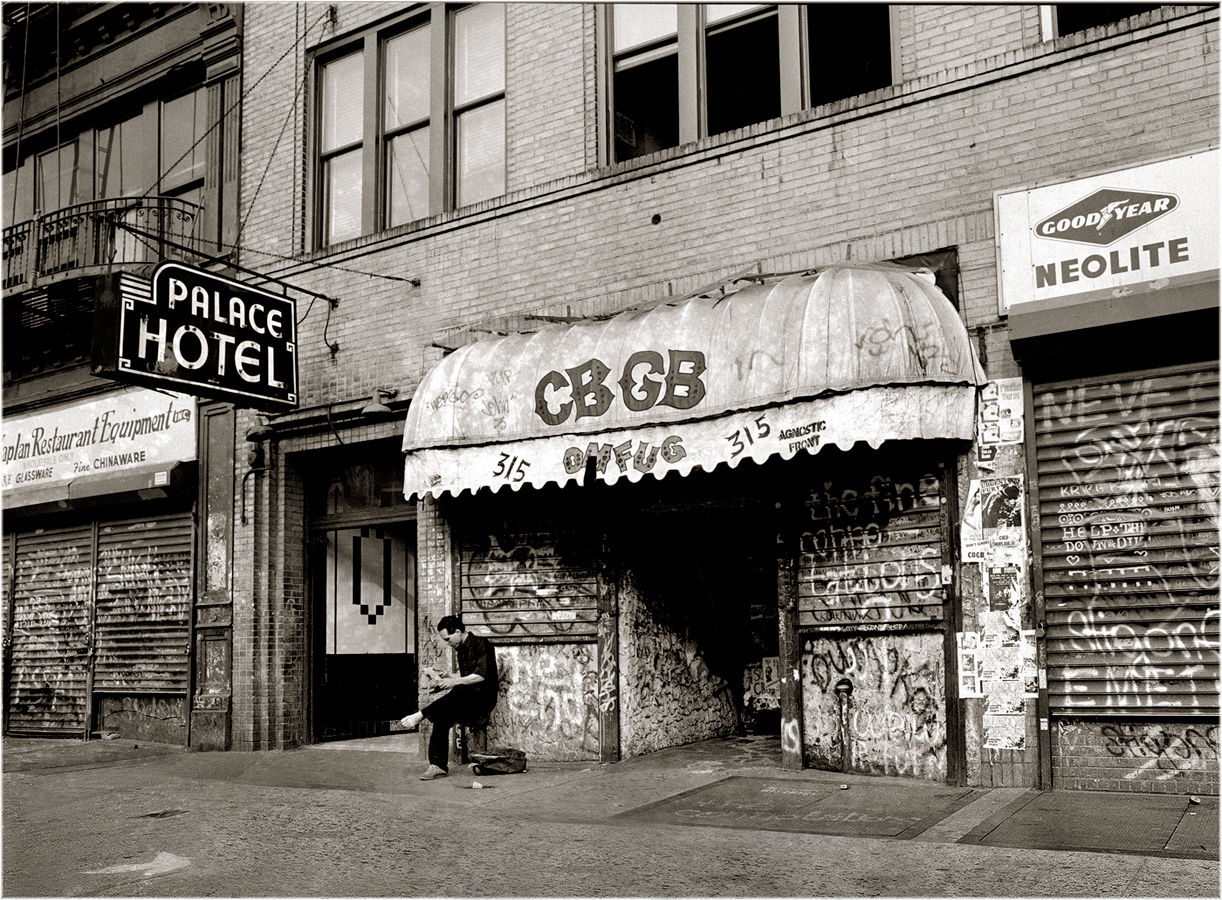John Rockwell’s 1977 New York Times article, “Report From New York’s Rock Underground,” (Rockwell’s NYT Article) offers an interesting account of the growing New York musical counter culture of the 1970’s as a well-published primary source. In hindsight, Rockwell’s observations and analysis of the growing Punk-Rock genre in New York illustrates notable marketing tendencies in reference to music, and a consequent disregard for inspiring artistry.
Rockwell’s description of New York being the home of a musical counter-culture extends beyond the title of his article, as he illustrates a pilgrimage to the city almost as a rite of passage for aspiring musicians. Rockwell writes: “People flock to Nashville or Los Angeles or New York in order to meet other musicians and to be noticed by the record companies and the press.” However this notion of chasing musical dreams in search of wealth is counterintuitive to both the content and creation of the music being globalized and monetized. The “punk” scene sought to shake up the status quo and was viewed by the artists as a movement. The mainstream success of the genre, however, created conflicts. In other words, the very musical artistry that Rockwell contextualizes on a monetary level, a search for “record companies and press,” demeans the social tensions that the music is a response to.
Rockwell continues this theoretical application of the New York Punk-Rock counter-culture to a global market, capitalistic structure as he declares: “That hardly means that some of the bands may not achieve the kind of mass success that a Bob Dylan enjoyed in the mid-60s (i.e., widely respected, healthily commercial but not monster superstardom in terms of record sales alone). But if they do so, it will be because they have bent the public to a new sensibility rather than because they bent their music to pre-existing popular taste.” Such a sentiment is telling, beyond Rockwell’s lack of foresight regarding Bob Dylan’s longevity in terms of record sales (of course), as he is determined to strictly judge the genre on a mass-cultural level. This is evident through Rockwell’s concentration on bands’ ultimate “mass success,” in comparison to previous musicians rather than on their innovative music. His observation, keeping one eye on the past and one on the future, results in the creation of a binary relationship between the public sphere of mass music- widely respected ’60s classic Rock- and the private or underground sphere of the New York punk counter-culture.
Additionally, Rockwell’s assertion that, “If these musicians achieve mass success, it will be because they have bent the public to a new sensibility,” represents a misunderstanding of the nature of musical counter-cultures. Whereas Rockwell suggests a counter-culture (New York’s specifically) must sway public sensibilities to become mainstream, I believe that counter-culture only gains “mass-success,” if they already, genuinely embody relatable sentiments. “Punk” rock was a throwback to a more raw and simple form of rock and roll, so it inherently was relatable by the listening audience. However, here lies the Catch-22, because the New York counter-culture wasn’t only about the music. It also grew from a desire for volitional poverty, a response to rapid “cookie-cutter” suburbanization. In other words, the notion to bring Punk to mass audiences is hypocritical in that Punk-Rock music at its roots is a cognizant response to its preceding popular music, with little to no desire for wide spread acceptance. In this way, Rockwell’s attempts to pigeon hole the emerging Punk-Rock music scene into pre-existing genres is a slippery slope in that it undermines the very Bohemian values being expressed. Such is a slippery slope is musicians losing sight of their inspiration by instead focusing on record sales, which would in turn result in a more hollow, less personal form of artistry.
Therefore, while I believe that Rockwell’s 1977 New York Times articles, “Report from the New York Underground,” offers interesting insight into the monetary success of Punk-Rock bands at the time on a national stage, it lacks a certain socio-political understanding of the effects of social tensions that inspired the Punk scene itself.

